Event overview
From 4 to 6 August 2025, 64 researchers, practitioners and innovators from over 20 countries gathered in Bangkok to explore the business case for a circular economy. The event brought together a cross-sector group – engineers, entrepreneurs, designers, policy specialists and academics – all working at the intersection of sustainability, innovation and inclusion.
In partnership with PMUC, and chaired by Dr Debashish Bhattacharjee FREng (India) and Dr Jintawat Chaichanawong (Thailand), the symposium combined case studies, critical discussion and group work over three days.
Dr Bhattacharjee encouraged delegates to use the symposium to connect across disciplines and sectors, and to turn ideas into challenge-led collaborations with real environmental, economic and social impact.
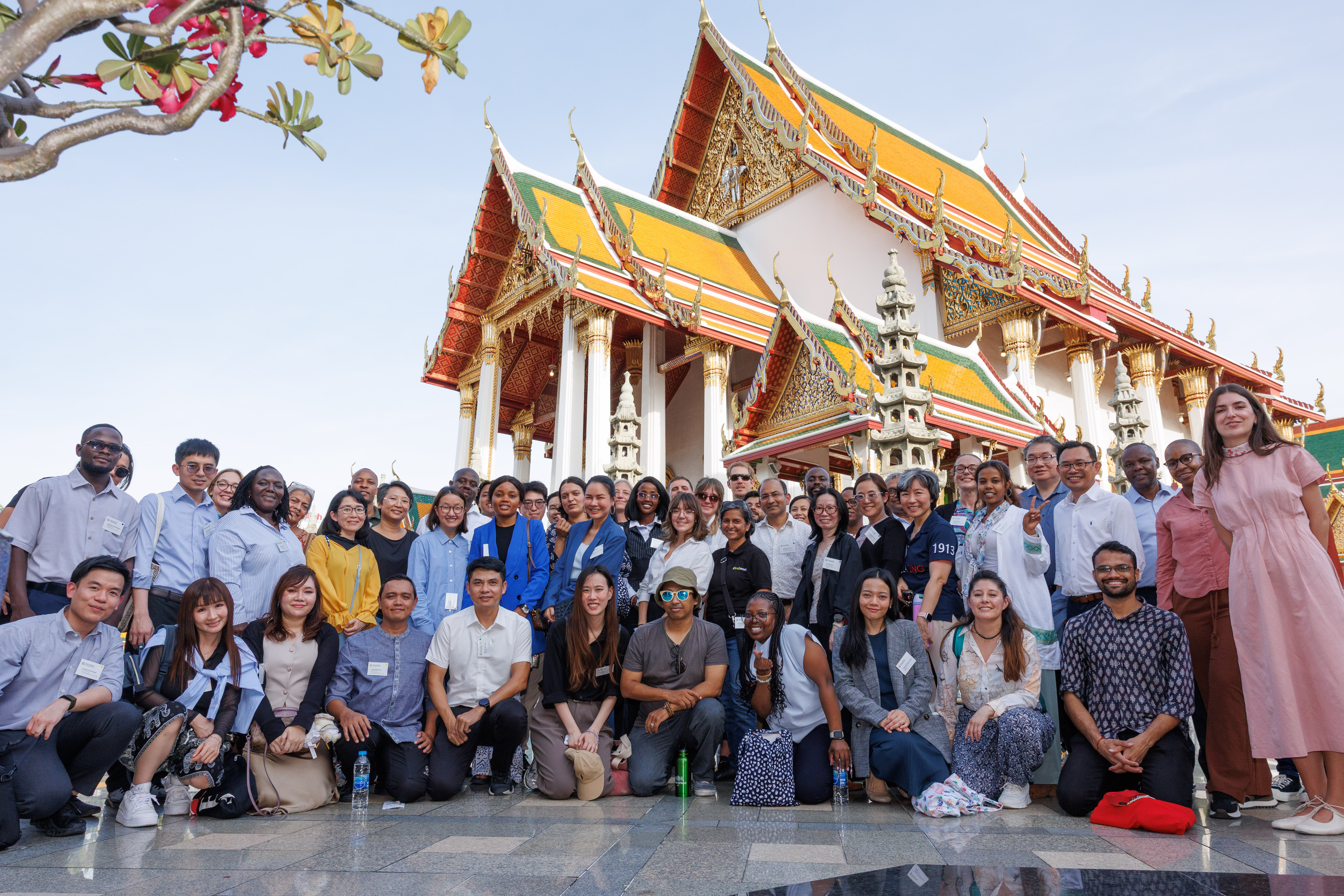
Circularity is not just an outcome of
our work – it is the method.’
Dr Bhattacharjee
Discussion themes
This report summarises the key findings from the session discussions, with the following overarching insights across the sub-themes:
- Circularity is a business strategy: demonstrating that circular economy models can be commercially competitive and socially inclusive.
- Inclusion is infrastructure: inclusion requires collaboration at all stages of the process between governments, the private sector, communities, and the informal workforce to design systems that work for all.
- Systemic change, not surface tweaks: circularity requires redesigning materials, incentives, policies, partnerships and mind set shifts.
- Finance and policy as enablers: targeted regulation with adequate enforcement and investment are the keys to unlocking progress.
- Urgency meets optimism: Despite systemic challenges, the tone was pragmatic and hopeful, rooted in what’s already working across Africa, Asia, and Latin America.
Event chairs

Dr Debashish Bhattacharjee FREng
Lionstead Ventures LLP, India
Dr Bhattacharjee has over 40 years of experience in materials science, industry, and entrepreneurship. With a PhD from the University of Cambridge, he led global technology at Tata Steel, driving advances in decarbonisation and valorisation technologies. He has been recognised with numerous distinctions, including Fellowship of the Indian National Academy of Engineering and the Government of India’s National Metallurgist award.
Dr Bhattacharjee is now Managing Partner at Lionstead Ventures LLP and Professor of Practice at IIT Madras, focusing on deep-tech innovation and sustainability
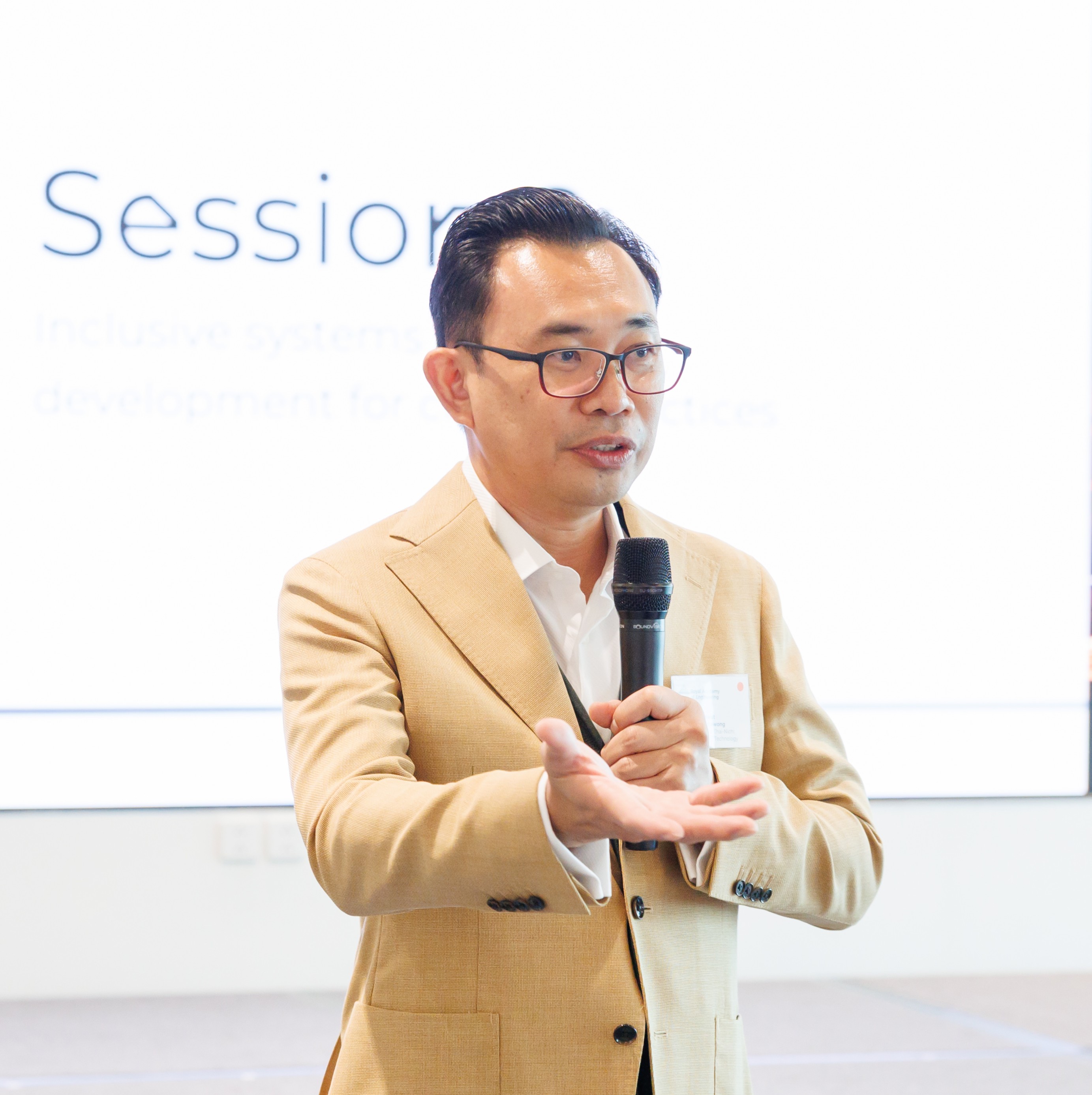
Dr Jintawat Chaichanawong
PMUC and Thai-Nichi Institute of Technology (TNI), Thailand
Dr Chaichanawong is Program Director of the Circular Economy Programme under PMUC, and Director of the Centre of Research Excellence in Material Engineering and BCG Economy at TNI. He is a leading expert in chemical and materials engineering, with research interests in bio-based materials, waste-toenergy innovation, and carbon-neutral technologies such as biocoke derived from agricultural residues.
With extensive international collaborations and deep experience across academic and policy spheres, he plays a key role in bridging research, industry, and policy to drive innovation in circular economy and sustainable development.
Sessions and speakers
Digital solutions and creative design
for the circular economy
This session focused on upstream circularity – designing waste out before it exists –and using digital tools to connect fragmented actors. Speakers showed how digital integration can strengthen existing informal systems, how traceability and incentives can formalise work without erasing it, and how product-as-a service models make circularity commercially viable. Together, they illustrated a pathway from pilots to scale: build institutional capacity, create trusted data flows, and align business incentives from the start.
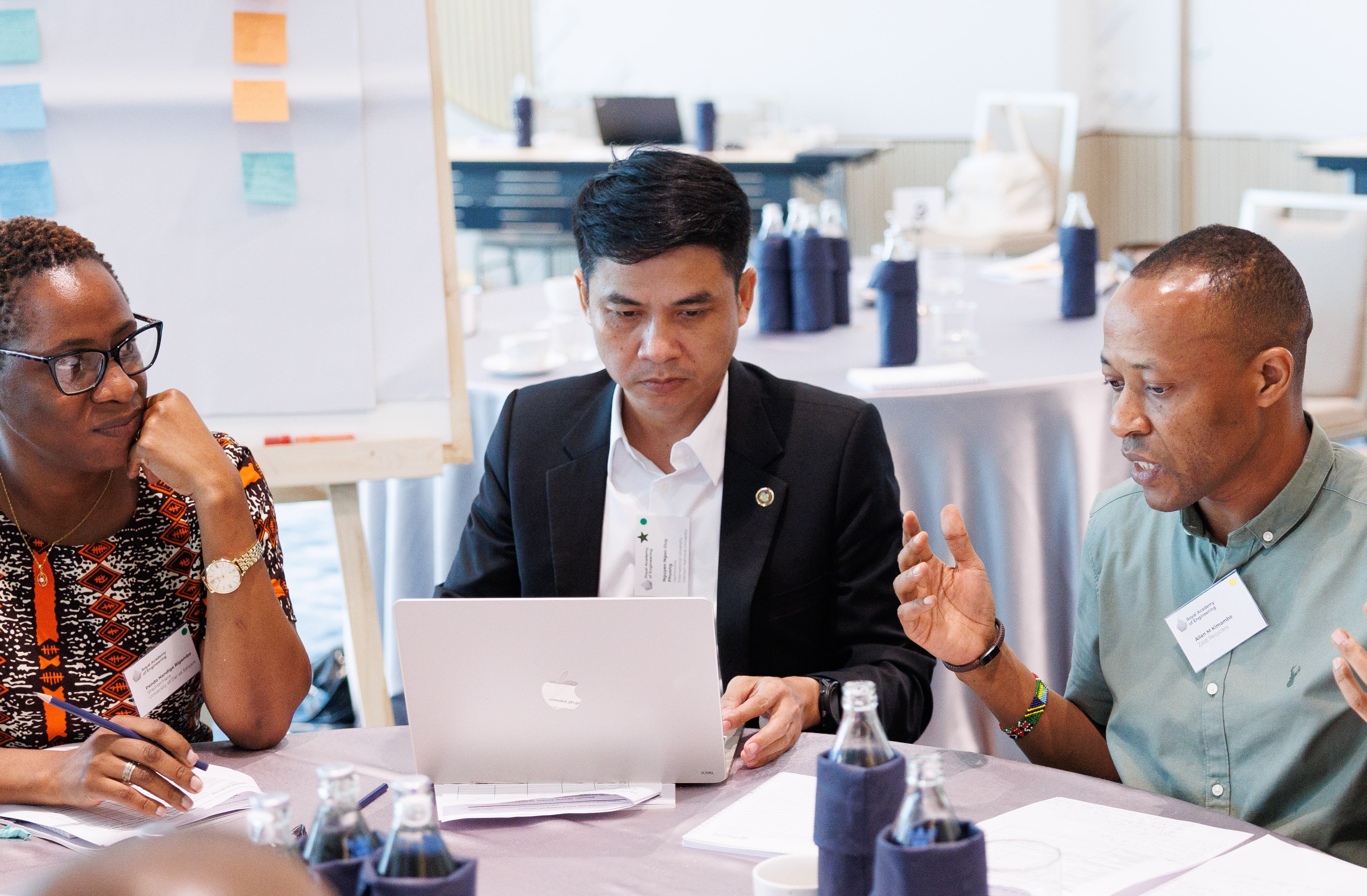
Key takeaways
- Technology as a connector: a digital app can connect a fragmented circular economy, strengthening existing systems by improving
coordination and transparency between waste banks, aggregators, and municipal services. - Human-centred approach: the most successful innovations focus on the people at the centre of the system.
- Circularity is a business strategy: case studies from Thailand and Kenya prove that circular economy models are not just about environmental benefit but are also commercially competitive and socially inclusive.
- Extending product life and rethinking design requires a mix of market innovation and practical services, from creating secondary
markets with hygiene certification to
offering cleaning, refurbishing and even “bed insurance”. - Simplifying design and reducing materials makes reuse and recycling easier, while alternative end-uses (e.g. erosion control, sound insulation) can capture residual value.
Presentations
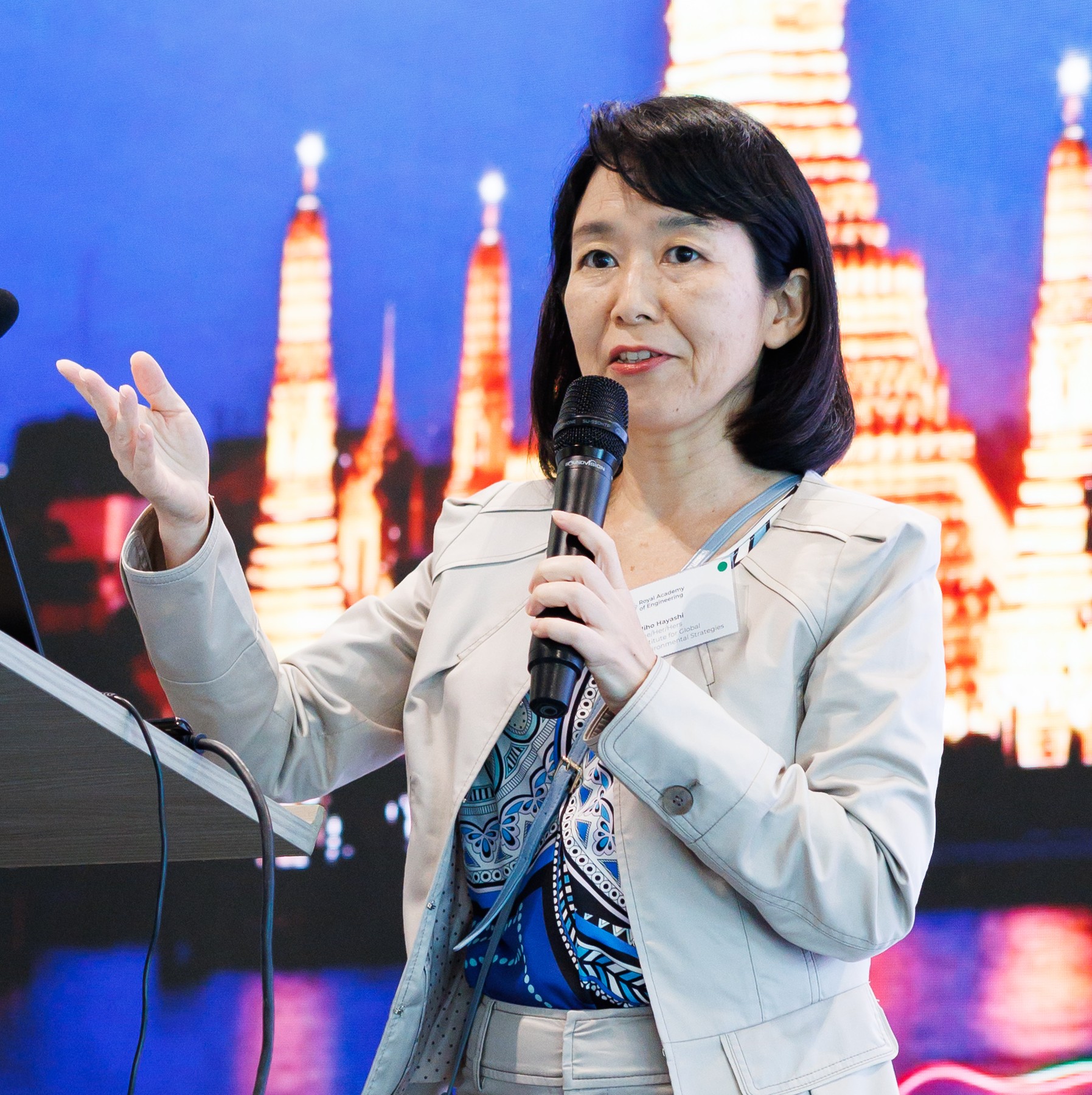
Pilot activity on plastic waste management in Padang, Indonesia: Building a foundation for collaborative work through digital integration
Miho Hayashi (IGES)
Miho Hayashi presented a pilot from Padang City
which uses digital integration to link waste banks,
aggregators, off-takers and the municipality. It
aims to boost source segregation, strengthen the
business viability of waste banks, and improve
coordination and transparency. Grounded in
Padang’s Integrated Solid Waste Management
(ISWM) studies and 2023 to 2030 action plan, the
tool is framed as foundational infrastructure
for better collection, reporting and stakeholder
alignment that reduces leakage and pollution
while preparing the city for longer term
systems change.
“Data is indispensable – not only for business
decisions but also for making policy,” noted
Hiyashi. “With the right tools, we can turn
waste flows into knowledge that empowers
communities and guides better solutions.”

Innovating waste management solutions for circular economies in Africa
Mary Ngechu (TakaTaka Ni Mali)
In Mary Ngechu’s presentation, we heard about how Ecomali connects collectors, aggregators and buyers through transparent, data-rich transactions with mobile payments and carbon credit potential. By making recovery traceable and rewardable, the platform helps informal workers capture value, supports extended producer responsibility (EPR) and ESG compliance for brands and regulators, and turns “waste” into a reliable, compensated resource flow – formalising with the informal sector rather than against it.
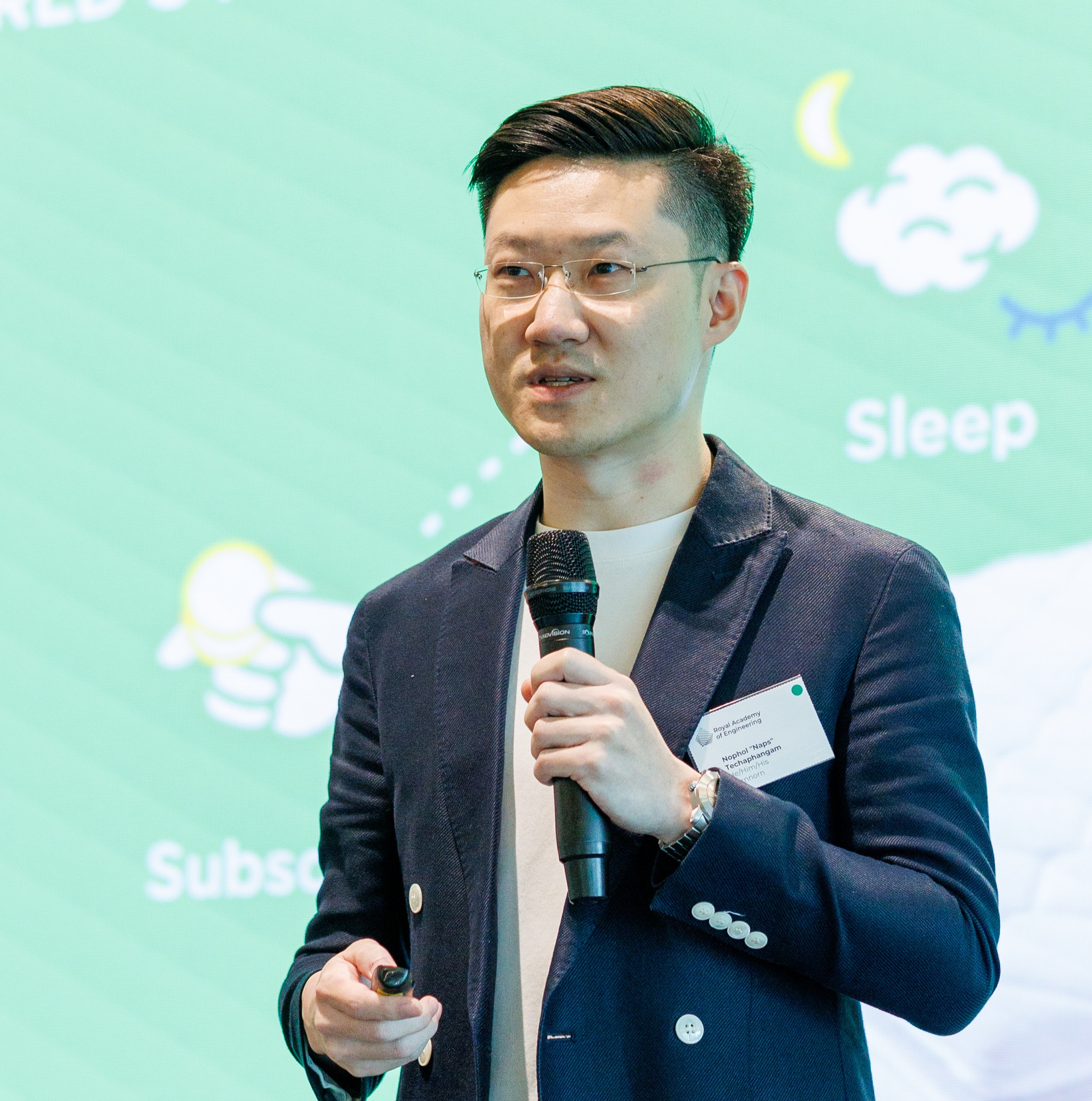
Circular economy productas-
a-service platform
Nophol “Naps” Techaphangam (Nornnorn)
Nophol “Naps” Techaphangam took us through how mattress manufacturer Nornnorn operationalises the product-as-a service model in Thailand and Indonesia, using e-commerce and fintech to embed repair, reuse and end of- life recovery in their manufacture, sales and distribution from day one. The firm pairs operations with evidence (including life cycle assessment resources) to show commercial and environmental benefits, positioning circularity as a growth strategy rather than a constraint.
Inclusive systems and policy development for circular practices
This session examined how circular transitions become just and workable when they recognise existing informal expertise, put the right policy levers in place, and make the economics add up for workers and cities.
Together, the talks reinforced that inclusion requires governance, data and traceability, and social protection – not just new infrastructure – and that transitions must be sequenced, context specific and economically viable.
Presentations

Waste-picker led, city-scale solid waste management
Lakshmi Narayanan
Lakshmi Narayanan showed how SWaCH, India’s largest waste-picker-owned cooperative, delivers door-to door service funded by user fees and governed by elected representatives. Integrated with the Pune Municipal Corporation, the model achieves ~98% source segregation, ~35% dry-waste and ~37% plastic recovery, alongside social welfare access for workers and ~$11.6 million annual savings to the municipality.
Narayanan emphasised how inclusion was central to the success of the project, saying, “recycling without waste pickers is just garbage”, and emphasising how the scheme fostered dignity and identity among pickers. SWaCH was framed as being part of a just transition, promoting gradual systems change while drawing on the strength, expertise and depth of knowledge of pickers.

Building inclusive circular economics
Zoë Lenkiewicz
Zoë Lenkiewicz argued for the “Sympathetic Formalisation Framework” based on six key principles:
• recognise existing expertise
• build capacity
• create incentives
• maintain autonomy
• ensure sustainability
• support a gradual transition.
Giving Colombia as an example, she noted 697 organisations registered, 56,800 workers formalised, and 5% monthly growth in recycling rates. Lenkiewicz explained the progress is meaningful yet uneven and sensitive to market conditions – underscoring the need to tailor pathways for villages, small islands and megacities rather than impose one-size-fits-all rules.
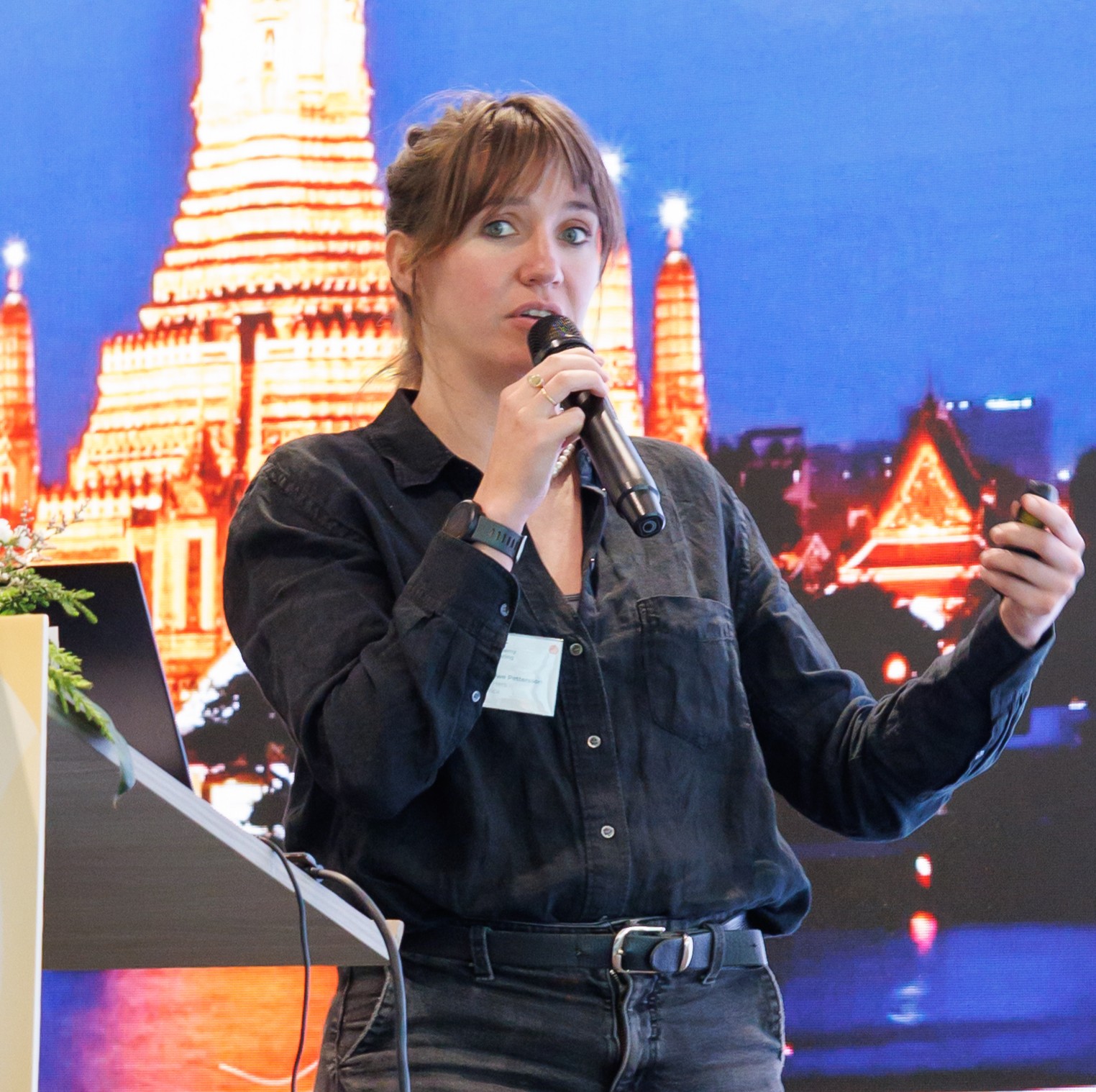
Policy levers for circular economy implementation
Kiera Crowe Pettersson
Kiera Pettersson translated inclusion into policy design, mapping measures against EMF’s five goals:
• Standards and design for durability and modularity
• Systems to preserve value (such as collection and sorting, product as-a-service)
• Fiscal shifts to make the economics work
• Investment in infrastructure, innovation and skills
• Platforms for collaboration and
cross-border alignment
The message: pair legal recognition and finance with capacity, data and skills so local governments can build circular economy systems that fit their realities.
Waste valorisation
and financing strategies
This session explored how waste streams become economic inputs with the right mix of infrastructure, skills and finance. Speakers highlighted how key themes, including decentralisation, “plug-and-play” accessibility, targeted incentives and credible data can make valorisation investable at scale.
Key takeaways:
- Valorisation is investable: clear revenue models exist across e waste, organics and agri-residues when infrastructure, skills and offtake are in place.
- Design for inclusion: facilities and finance must be designed with and work for informal operators (including tools, training, safe workplaces, and market linkages).
- Targeted incentives unlock scale: align user fees, public subsidies and carbon and impact finance to de-risk early-stage companies and crowd in private capital.
- Traceability builds trust: digital measurement of inputs, origins and emissions (such as blockchain and life cycle assessment) strengthens market access and policy credibility.
- Local systems, regional learning: decentralised models (such as Blantyre compost) thrive when adapted to context and connected to wider policy goals.
- Turning waste into value requires sector-specific solutions but also common enablers: traceability, new business models, and decentralised processing.
Presentations
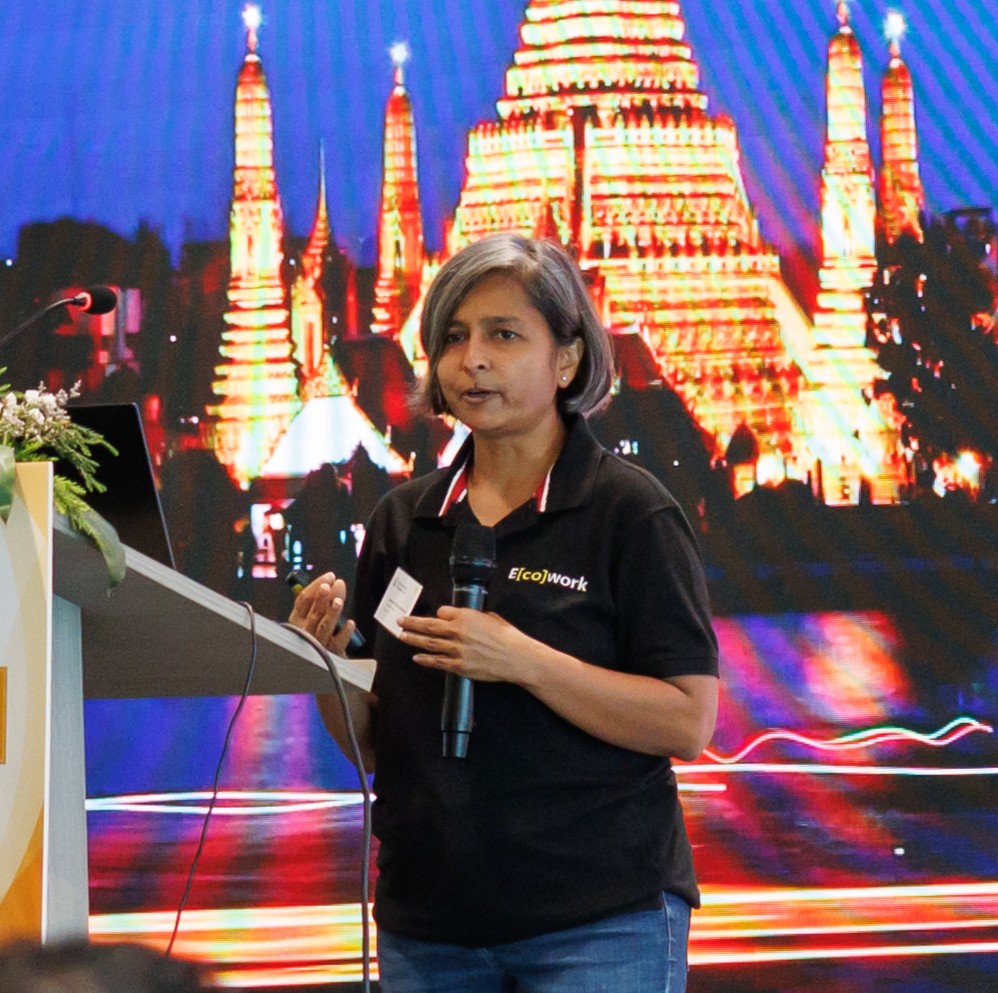
The business case for better e-waste management
Deepali Sinha Khetriwal
Deepali showcased how E[co]work reframes formalisation as plug-and-play: a co-working facility where informal collectors, aggregators and dismantlers can access safe space, tools, training and buyer links without first navigating licensing and paperwork.
It’s designed as an interface that solves pain points for all parties: recyclers want reliable feedstock, producers need traceable EPR credits, and regulators can’t effectively police atomised informal yards.
The model emerged from participatory design with workers in Delhi, surfacing what they actually need: security, hygienic facilities, predictable market access, and acknowledging the diversity of roles along the informal chain. The pilot also highlighted the community dynamics at play: how cooperatives, family networks and peer-to-peer trust shape the way work is organised, and why a one-size-fits-all approach often fails.
The discussion drew out the role of the regulatory framework too, noting that without clear recognition and enforceable standards, informal workers remain vulnerable even when they enter more formalised spaces.

Waste not, want not: regenerating Africa’s soils through composting
William “Billy” Bray,
William Bray of Waste Advisers in Malawi demonstrated how unit economics improve when you fix the system, not just the site. To curb “fake compost” (sold as soil), the team created thermophilic compost certification with the Malawi Bureau of Standards, selling a “living product” (microbial activity as a quality signal) rather than a mere fertiliser substitute.
Malawi spends $90 million per year subsidising synthetic fertiliser, and globally $530 billion goes to agriculture-input subsidies, with less than 5% to sustainable inputs.
Waste Advisers’ pilot now buys and re-subsidises compost to 1,000 farmers at parity with fertiliser, with a university evaluating outcomes as part of a push to shift national subsidies. Waste Advisers also brought in the Malawi Circular Economy Network to keep the whole chain aligned.
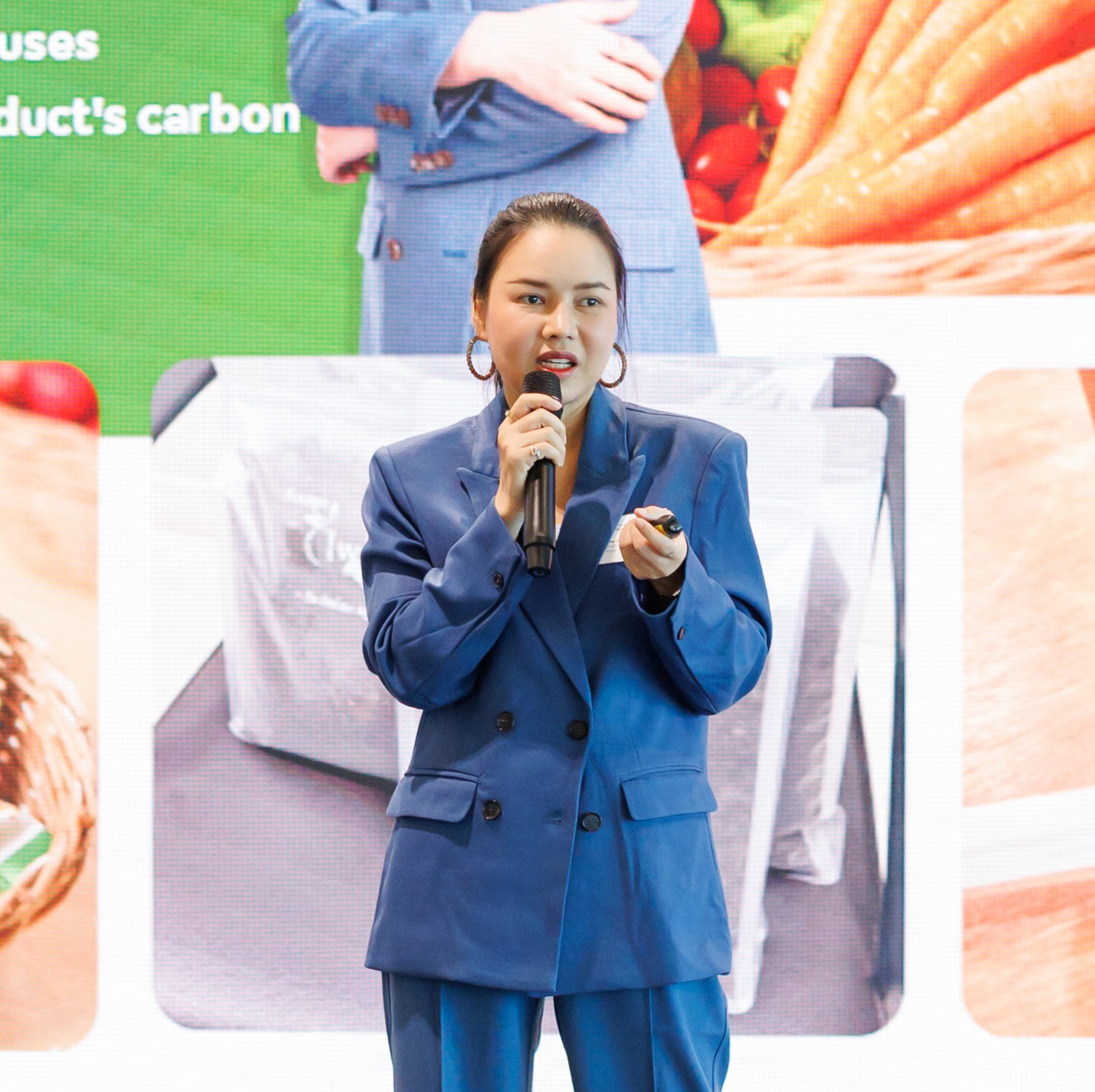
Ugly Veggies Plus: advancing sustainability in organic agriculture through technology and waste valorisation
Associate Professor Phaninee Naruetharadhol
Between 30-50% of crops produced by farmers in Thailand’s Khon Kaen province are lost as “ugly veg”, unsuitable for consumer shelves. Associate Professor Phaninee Naruetharadhol presented a case study where, starting from a consumer preference problem, the Ugly Veggies platform lets farmers list produce, set prices and choose logistics, with the university helping on packaging and cold chain for transport to Bangkok.
After a year, about 5% residue still remained; the team valorised it into protein bars, compost soil and biodegradable plastic. They validated its performance with life cycle assessment, finding up to 40% CO₂ reduction, with 20 to 30% lower production costs, and a social return on investment (SROI) of 1.29. Crucially, the work changed vegetable production from a linear flow to a circular flow.
Keynote Speakers
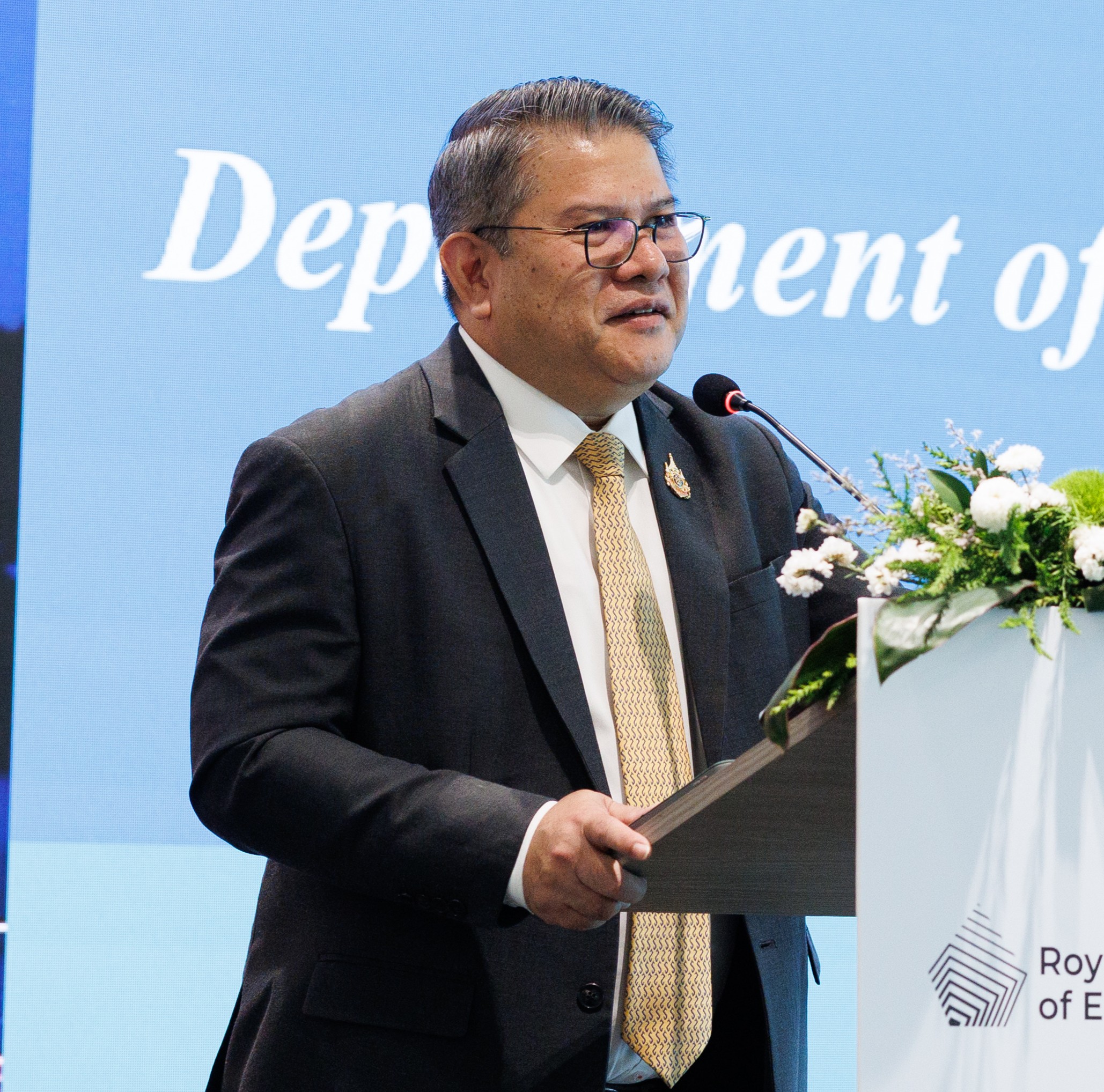
Pavich Kesavawong, the Deputy Director
General, Department of Climate Change and Environment, Thailand
Mr Pavich spoke on ‘Propelling
the circular economy towards net zero policy:
the national and international perspectives’.
He explained how initiatives like low-carbon
communities and green hotels emphasised lowemission
and zero-waste communities, as well as
the circular economy measures outlined in the
Thai government’s Decarbonisation Pathway,
NDC Action Plan and National Adaptation Plan.
His keynote described circular economy actions
across the value chain. These included reducing
virgin materials, systematic recycling and reuse,
eco-design, circular business models (such as
product-as-a-service), and life-cycle carbon
management. He also highlighted the enabling
policy under the draft Climate Change Act.
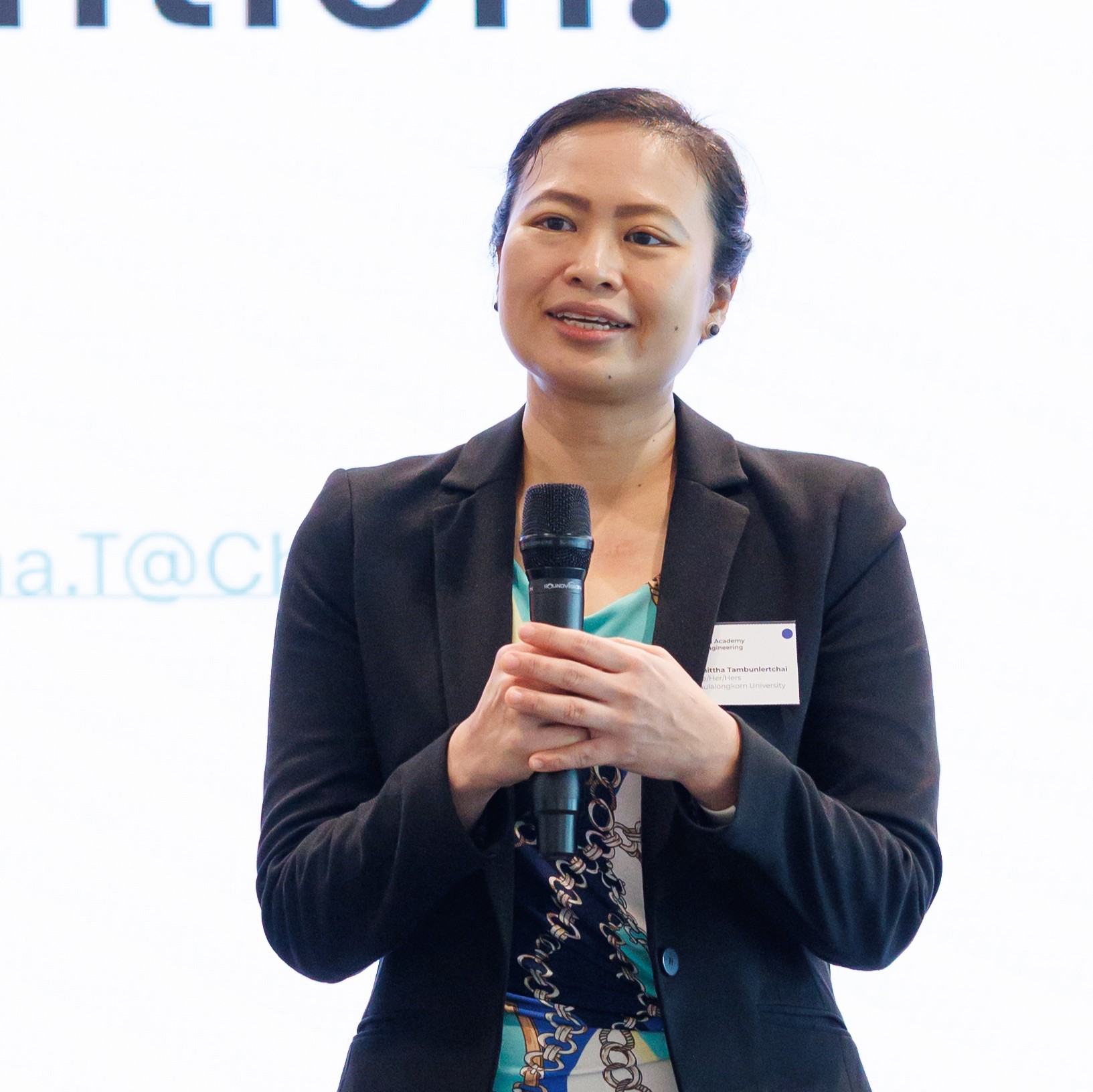
Dr Kanittha Tambunlertchai, Chulalongkorn
University, Thailand
Dr Kanittha spoke on ‘Incentivising the circular
economy in Thailand and beyond’. She stressed
how a circular economy creates value but
faces cost disadvantages compared with linear
models, which currently have lower capital
costs, simplified supply chains and easier access
to finance. Dr Tambunlertchai suggested that
the key to unleashing the circular economy
was overcoming institutional barriers and even
creating new institutions that motivate the
protection of natural resources. After outlining
ASEAN’s Framework for a Circular Economy for
the ASEAN Economic Community and giving
regional case studies such as Malaysia’s reverse
vending machines, she warned that there remains
a lack of coordination between public, private, and
civil sectors and that rules and policies often exist
but are weakly enforced.
Interested in the next Frontiers symposium?
Frontiers connects and empowers enthusiastic researchers, innovators and practitioners from the UK and around the world to work together on new ways to solve complex global challenges.
More Symposia reports
Browse resource libraryAgriculture, big data and the knowledge economy
The event brought together 66 early- to mid-career researchers to share ideas and discuss development challenges arou…
Empowering resilience: integrating innovation, sustainable communities, and climate adaptation strategies
Delegates from different disciplines and 19 countries came together to explore innovative climate adaptation approaches…
Systems approaches in a just energy transition for equitable access
Delegates from different disciplines and 23 countries came together to discuss how systems approaches can support the t…
